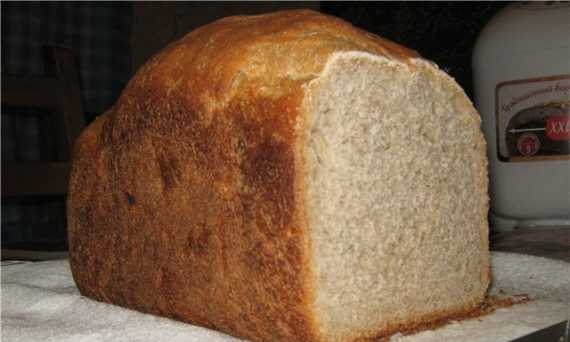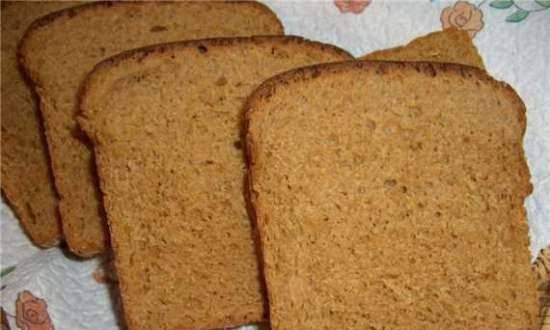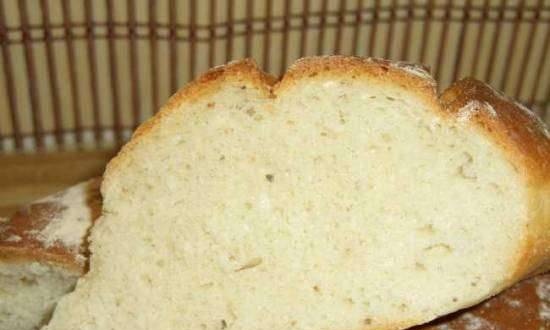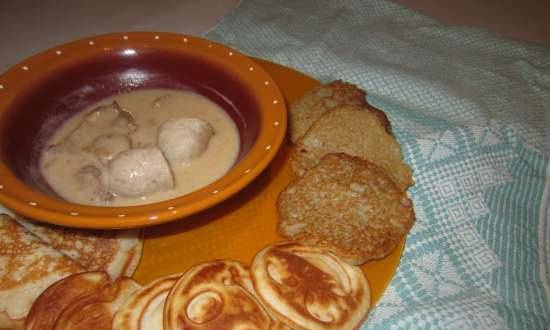|
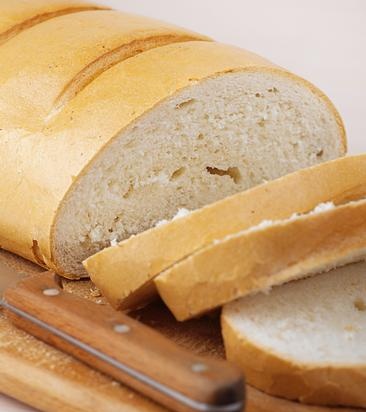 No matter how rich the festive table is with various dishes, everyone will notice the absence of one of them. This is bread. No matter how rich the festive table is with various dishes, everyone will notice the absence of one of them. This is bread.
Greatest invention
How long ago did people start baking bread? In Sweden, not far from Orlund, archaeologists excavated a piece of bread that is 1400 years old. Together with the gnawed bones, he was in an earthen pot.
Loaves of various shapes and sizes have been found during excavations of Egyptian tombs. So, in the tomb of the Egyptian queen Hatshepsut, bread was found, which is 3,500 years old. Even more ancient bread was found in the tomb of Pharaoh Ramses III, it is almost 4600 years old. In the mud of a dried lake, archaeologists have found a fossilized piece of bread that was baked in the Stone Age - about 6 thousand years ago. Now it is kept in the museum of the city of Zurich.
And in ancient Greece, bakery was well organized. Even then, the Greeks baked 24 varieties of bread: black bread - for the common people, in olive oil - for the sick (the first mention of medicinal bread!), For athletes - with stimulating substances (isn't this the most ancient doping in sports?). The best bread was considered to be the so-called samidamite, which was baked from the finest flour. The ancient Hellenes baked vegetables, fruits, cheese, and baked cookies, similar to modern gingerbread and biscuits.
The great Russian scientist K.A.Timiryazev said that a fresh slice of well-baked bread is the greatest invention of the human mind. But if today we wanted to thank the person who made the first bread in the world, this would be impossible. Human memory has not retained the name of the baker, nor the date when this remarkable event occurred.
Grain of grain became human food more than 10 thousand years ago. At first, people ate raw grains, and then they learned how to crush them and fry them over a fire.
Bread was once the main dish. Moreover, in ancient Egypt, he was the only reward for labor. Our ancestors lifted up prayers to heaven for their daily bread, called him the breadwinner, father.
Out of great respect for bread, the people have put together many proverbs and sayings about it: "Any food becomes boring - bread never", "It is not a person who carries bread, but a person's bread", "It is not time for lunch if there is no bread", tasty, without bread it is not satisfying "," If there is not a piece of bread, then there is longing in the tower, and there is a loaf of bread, so is paradise under the spruce. "
Bread has not lost its importance in our days. It is impossible to imagine our everyday lunch without it.
White or black?
Bread contains proteins, fats, carbohydrates and other vital substances. Human bread satisfies approximately 1/3 of the daily nutrient requirements.
The high biological value of bread is primarily due to the complete proteins it contains, as well as minerals and vitamins. Bread proteins, especially rye and low-grade flour, contain all the essential amino acids, without which life is unthinkable. Bread is not very important amino acids - - lysine. Therefore, it is useful to use in the manufacture of bread whey, reverse, rich in lysine; With bread, the human body receives potassium, phosphorus, calcium, iron and various trace elements (copper, zinc, iodine and others). Of the vitamins in bread there are B1, B2, PP, E. Combining bread with animal products provides the best balance of amino acids, proteins, mineral salts and vitamins necessary for the body. The body assimilates better the nutrients contained in white bread, but its nutritional value is much lower than that of wholemeal bread. Black bread contains significantly more proteins, minerals and vitamins than white bread.The constant use of only white bread leads to a decrease in the peristalsis of the digestive tract. However, for people suffering from inflammatory processes of the stomach and intestines, white bread is healthier. Such people, eating black bread, suffer from increased gas production.
 Bread has one rare and very pleasant quality - it does not become boring. The poet M. Svetlov said well on this occasion: “Every food, even the most delicious, has its own flavor, while rye bread has a flavor, but no flavor”. Bread has one rare and very pleasant quality - it does not become boring. The poet M. Svetlov said well on this occasion: “Every food, even the most delicious, has its own flavor, while rye bread has a flavor, but no flavor”.
In the old days it was considered a grave sin to throw away at least a small piece of bread. And we should not forget about this good folk tradition, born of respect for human labor. Our daily bread deserves a reasonable and careful attitude towards itself.
The daily amount of bread should be limited (no more than 300 g, preferably 100-150), still giving preference to rye bread, as well as wheat from wholemeal flour and with the addition of bran.
Fresh or stale?
Do not buy too much bread: from long storage it stale, loses its taste, and can become moldy.
Too fresh, the bread just out of the oven is also not very good for eating: it chews poorly, rolls into lumps that are difficult to soak in digestive juices, which means they are less digestible. Lumps of hot rye bread stuck together are especially harmful; they can even cause indigestion. For people suffering from diseases of the stomach, liver and heart, it is better to eat yesterday's or slightly dried bread.
Store your bread correctly
Bread begins to harden after 10-12 hours of storage. It is recommended to store wallpaper bread no more than 48 hours, high-quality bread - 24 hours, and baked goods - 16 hours, counting from baking time.
When storing bread, the water contained in it evaporates and the cut sites dry out. To avoid this, it should be stored in special metal, tightly sealed bread containers, but you can also use a closed enamel pot (of course, well washed and dried), plastic dishes, plastic bags. Thick, colored PVC bread bags are not suitable.
The container or pan in which the bread is stored should be washed with hot water at least once a week and dried well. The plastic bags should be washed and dried after two to three days.
Bread products should not be kept in a dark, damp place, stored in the refrigerator, as they absorb moisture and begin to grow moldy quickly, acquire an unpleasant odor and taste, and accumulate poisonous substances formed by some types of mold.
Interesting and useful to know
- Store bread products separately from other products, especially if they have a pungent odor (fish, herring, spices), as bread easily perceives foreign odors, in addition, it can become contaminated.
- Bread lasts longer if you put an apple, a scrap of raw peeled potatoes or a little salt in the container in which it is stored.
- Bread will stale more slowly when wrapped in clean white paper or cloth.
- Fresh bread can be easily cut into thin slices if you heat a knife on the stove or dip it in boiling water for 1-2 minutes.
- Stale bread can be freshened up. To do this, sprinkle the loaf or slices with water or wrap in a slightly moistened clean napkin, put in a saucepan, close the lid and put in a heated oven or stove for 10 minutes.
- Bread will retain its taste and pleasant smell for a long time if you keep it in an enamel pan, on the bottom of which a little vanillin is poured, and a cellophane circle is laid on top.
- Once a week, remove crumbs from the bread basket and rinse it with a mild vinegar solution to help keep the bread mold free.
- Make sure that there are no leftovers of bread in the bread bin - over time they become a source of mold.
Kudyan A.N. - Hostess about food products
|
 No matter how rich the festive table is with various dishes, everyone will notice the absence of one of them. This is bread.
No matter how rich the festive table is with various dishes, everyone will notice the absence of one of them. This is bread.
